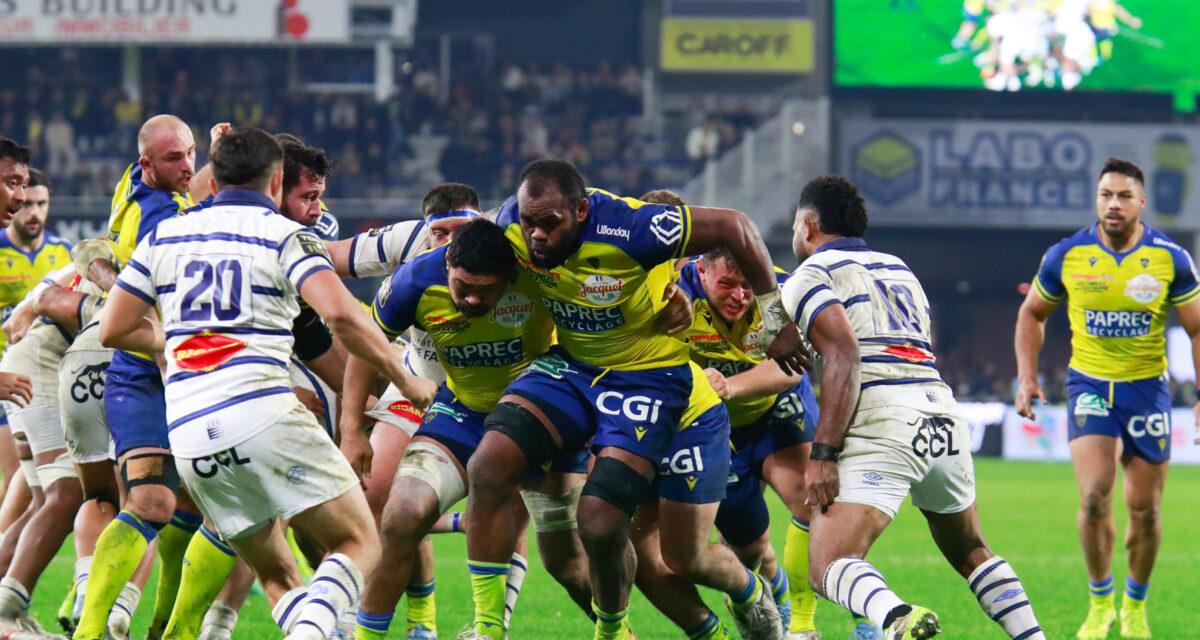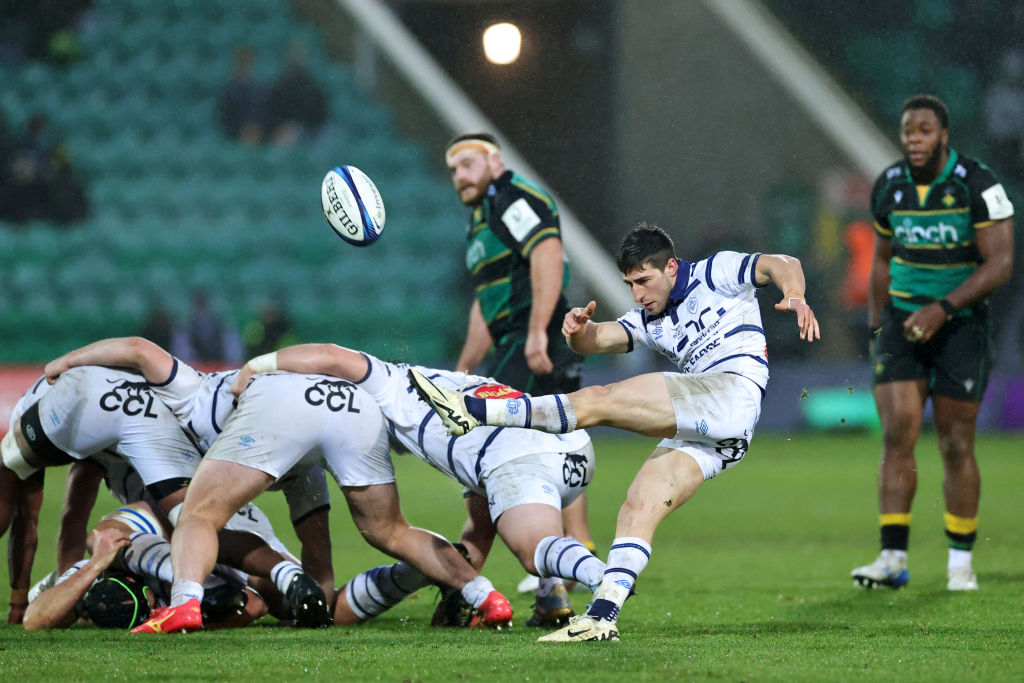In a fiercely contested match held in the shadows of recent tragedy, Castres Olympique delivered a pivotal victory against ASM Clermont Auvergne in their postponed Top 14 clash. This encounter was far more than just rugby; it marked a critical turning point in the qualification race leading towards the playoffs. The grit and determination of Castres propelled them closer to securing a coveted spot in the post-season, while Clermont’s ambitions to break back into the top six encountered a serious setback. The emotional weight of the game, postponed following the sudden passing of Josaia Raisuqe, added profound context to a fiercely competitive battle that kept fans on edge from kickoff to the final whistle.
Castres Olympique’s Tactical Mastery and Strategic Approach in a High-Stakes Top 14 Match
Castres arrived at this postponed 23rd fixture with a clear objective: solidify their position among the top six and move decisively towards qualification for the playoffs. What set this match apart was the meticulous preparation and sound tactics displayed by the CO coaching staff. Their game plan capitalized on precision, discipline, and exploiting Clermont’s inconsistencies. The team maintained a sturdy defensive line, which was crucial given Clermont’s historical attacking prowess.
The match highlighted several key tactical elements:
- Structured Defense: Castres focused on maintaining a compact and aggressive defensive stance, limiting Clermont’s space to maneuver and reducing their opportunities for line breaks.
- Effective Use of Set Pieces: Dominance in scrums and lineouts allowed Castres to control the tempo and territorial advantage, with young players showing maturity beyond their years.
- Dynamic Backline Movements: Utilizing fluidity and quick offloads, Castres’ backs capitalized on any defensive lapses, demonstrating high rugby IQ and sharp execution.
- Game Management: The team showed resilience under pressure, managing the clock and the game’s momentum to convert opportunities into points efficiently.
Castres’ strategic deployment leaned heavily on experienced players delivering under pressure, a testament to leadership on the pitch. Additionally, the team’s commitment to clean rugby minimized turnovers—an issue that had plagued Clermont repeatedly this season. This tactical discipline paid dividends against an ASM that showed moments of brilliance but struggled to sustain momentum.
In the context of 2025’s ultra-competitive Top 14, the importance of tactical versatility cannot be overstated. This match stands as a showcase for how a middle-tier side like Castres can leverage preparation and composure to upset stronger teams and enhance their postseason prospects.
| Aspect | Castres | Clermont |
|---|---|---|
| Scrum Success Rate | 89% | 76% |
| Lineouts Won | 16/18 | 12/17 |
| Handling Errors | 5 | 12 |
| Penalties Conceded | 7 | 11 |
| Points Scored | 34 | 26 |
Such statistics highlight the foundation of Castres’ triumph: superior set-piece efficiency and disciplined error management. This match makes a strong case for Castres as genuine contenders in the Top 14 qualifier race.
The Impact of Josaia Raisuqe’s Passing and Its Emotional Effects on the Castres Team
This postponed fixture carried a somber atmosphere after the tragic death of Josaia Raisuqe, affecting both teams deeply, but especially Castres, who had a close association with the player. His passing cast a long shadow over the preparation period and transformed the match into an emotional battleground.
The mental and emotional resilience demonstrated by the Castres squad was extraordinary. In circumstances that could easily have derailed focus, the players committed themselves to honoring the memory of their late teammate with a display of passion and unity on the field. This sort of motivation permeates sports history and transforms games from mere contests into stories of human spirit and solidarity.
- Grief as a Motivator: The collective grief galvanized the team into delivering a performance that spoke volumes beyond the scoreboard.
- Focus on Unity: Players displayed impeccable teamwork, reflecting a shared commitment both as professional athletes and human beings.
- Community Support: Fans and the broader rugby community rallied behind Castres, amplifying the emotional atmosphere inside the stadium.
Player leadership was instrumental in managing these emotions. Veteran leaders ensured that the squad stayed grounded, using rituals and tributes that kept Raisuqe’s spirit alive and translated into added willpower during critical phases of the match. This psychological strength made a material difference, as evident in Castres’s ability to hold their composure in tight moments.
In professional sports, such emotionally charged matches often produce unpredictable results, serving as a poignant reminder that beyond techniques and tactics, rugby is a deeply human game that ties emotion and athleticism inseparably. The victory for Castres, therefore, was not solely about points—it was a tribute, a statement of collective resilience.

For further insight into the emotional dynamics impacting teams in rugby, one can explore narratives like the All Blacks’ inspiring triumph in Joburg, which exemplifies overcoming adversity on a global stage: Relive the All Blacks victory in Joburg.
ASM Clermont’s Struggles: Errors and Tactical Deficiencies That Halted Their Top 6 Push
ASM Clermont Auvergne entered the fixture eager to close the gap on the Top 6, with playoffs within sight. Yet, their performance revealed several critical issues undermining their campaign. While moments of individual skill shone through, the collective effort lacked coherence and consistency.
Several factors contributed to Clermont’s disappointing showing:
- Defensive Vulnerabilities: The Clermont defense, once a hallmark of their style, showed troubling lapses and weak tackling in high-pressure situations.
- Excess Handling Errors: Uncharacteristic errors, including multiple knock-ons and miscues, disrupted rhythm and squandered scoring opportunities.
- Inexperienced Key Positions: The selection of a young, less seasoned prop as a starter drew criticism, with observers questioning readiness for such responsibility at this critical juncture.
- Lack of Strategic Game Plan: The team appeared disjointed in attack, relying too heavily on individual flair rather than structured plays, leaving them predictable and easy to defend.
The comments from fans and critics encapsulate the frustration: many point to a perceived decline in coaching effectiveness and leadership, hinting that squad renewal via recruitment in the off-season must be coupled with fresh ideas and tactical rigor. The need for rebuilding the team’s defensive identity and instilling consistency is urgent if Clermont is to re-enter the playoff conversation.
For teams facing similar challenges, lessons can be taken from other rugby leagues and tournaments where strategy and player development have turned the tides. For instance, the Glasgow Warriors’ comprehensive 8-try thrashing of Cardiff showed how tactical precision and aggressive play can reshape team fortunes in the URC: Glasgow destroy Cardiff with 8-try victory.
| Category | Castres Performance | Clermont Performance |
|---|---|---|
| Handling Errors | 5 | 12 |
| Tackles Made | 92% | 78% |
| Turnovers Won | 7 | 3 |
| Kick Success Rate | 80% | 67% |
| Try Count | 4 | 3 |
The contrast in discipline and execution starkly favored Castres, despite Clermont traditionally regarded as a powerhouse. When clubs falter at crucial moments, momentum can quickly shift in leagues as competitive as this, making every match a vital learning opportunity.
Brand and Kit Influence: The Role of Nike, Adidas, Puma and Other Sportswear Giants in Top 14 Performance
Beyond pure rugby tactics and emotional resilience, the modern game increasingly intertwines with powerful sports brands that outfit the teams. In the Top 14, the presence of leading apparel companies shapes more than just aesthetics—it influences player comfort, preparation, and even club identity.
Teams like Castres and Clermont rely on innovation from brands such as:
- Nike: Renowned for performance fabrics enhancing breathability and mobility, Nike’s gear is popular among several French clubs for its ergonomic advantage on the field.
- Adidas: With its cutting-edge technologies in moisture control and durability, Adidas kits provide reliability across grueling matches.
- Puma and Under Armour: Often favored for their lightweight fit, these brands help athletes maintain agility and speed, critical in modern fast-paced rugby.
- Reebok, New Balance, Lacoste, Asics, Champion, Mizuno: Each of these brands contributes unique designs and technical features, supporting everything from training gear to match-day uniforms.
The interplay between high-quality sportswear and enhanced athletic performance is no coincidence. For example, during intense fixtures requiring swift changes in direction and rapid accelerations, the right footwear can mitigate injury risk while boosting confidence. Clubs have also boosted marketing deals and fan engagement through stylish kits, fostering strong brand loyalty both locally and internationally.
Furthermore, the trend toward sustainable materials in sportswear advances the Top 14’s reputation for progressive values. Castres’ recent partnership with Adidas emphasizes eco-conscious fabrics, aligning club values with today’s environmental priorities and appealing to younger fan bases across Europe.
The impact of these partnerships extends beyond the pitch by promoting club professionalism and supporting athlete wellbeing, essential for maintaining high standards throughout the challenging Top 14 season. Observing how teams like CO manage their sportswear relationships reveals much about their ambitions and preparedness.
[embedded content]
Looking Forward: What the Castres vs Clermont Outcome Means for the Playoff Qualification Race
The result of this crucial fixture reshapes the Top 14 landscape heading into the final matches before playoffs. Castres’ victory not only secured vital points but also injected confidence and momentum as they approach the decisive stages of the campaign. Positionally, the win moves CO firmly towards the upper echelon of the league table, threatening traditional heavyweights.
Breaking down the playoff context:
- Castres’ Position Strengthened: With this victory, Castres solidified their hold on a top six berth, setting up a potentially advantageous playoff seed.
- Clermont’s Playoff Hopes Jeopardized: The defeat highlights significant work needed for Clermont to regain form and consistency, with fewer matches left to climb back up.
- Pressure on Contenders: Teams like La Rochelle and Toulouse will now face increased competition as Castres pushes upward, intensifying late-season battles.
- Psychological Edge: The morale boost from a win in such an emotionally charged match cannot be overestimated for Castres’ mental preparedness.
The upcoming fixtures will demand high levels of fitness and tactical acumen, given the congested Top 14 schedule. Castres’ demonstrated ability to integrate young talent and maintain composure under duress makes them one of the more intriguing teams to watch in this qualification race.
For fans and analysts seeking to draw parallels on team momentum and playoff prep, examining highlights like Gloucester’s strong preseason victory over Munster provides insight into how early season successes can predicate competitive depth at later stages: Gloucester’s victory against Munster.


